
Experience Products Marketing: branding lasting memories
In an era where experiential purchases surpass the allure of tangible goods, the “experience product marketing” strategy takes the spotlight. The enchantment of memorable experiences is shaping a booming market and paving the way for a vibrant sensory economy.
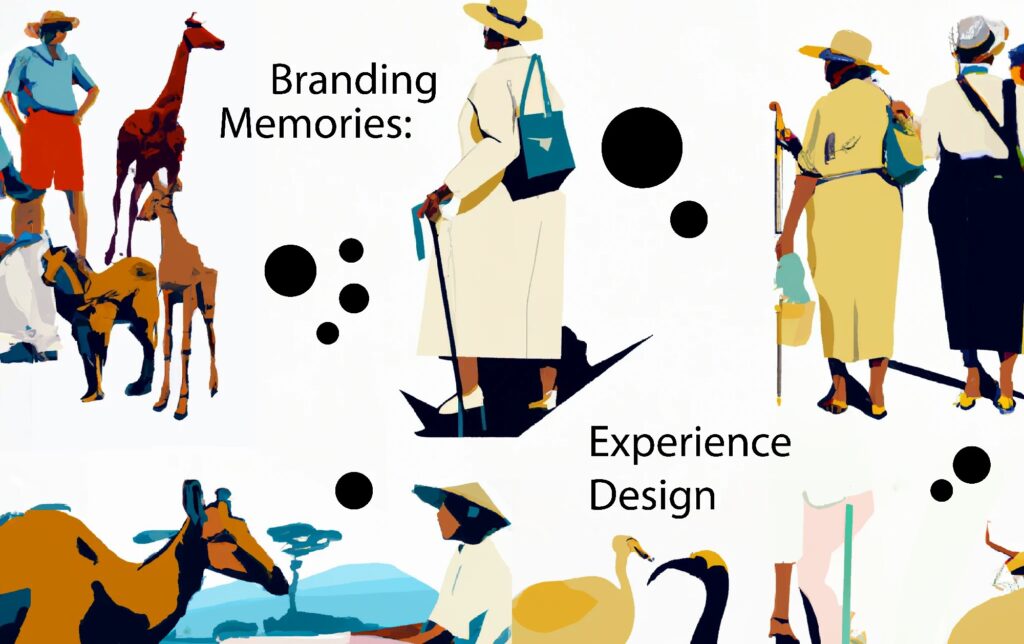
Evolution and Growth of the Experiences Market
The marketing realm has witnessed a significant shift from a tangible goods-centric approach to an experience-oriented strategy. This evolution, which started at the turn of the 21st century, saw consumers seeking more meaningful interactions, driving the evolution of the experiences market. The boom in adventure tourism and wellness retreats, like those offered by Abercrombie & Kent, exemplify this trend. Through curated journeys like safari adventures in the Serengeti, brands engage consumers seeking discovery and escape.
The Scale and Value of the Experiences Market
To appreciate the significance of this market, consider pre-pandemic figures. The global travel and tourism market touched nearly $9.25 trillion in 2019. A substantial segment of this vast market is driven by consumers seeking unique, authentic experiences. It is evident that experience product marketing has a massive role to play in the broader consumer landscape.
Future Trajectories and Digital Influences
The trend towards experience products is not a passing phase. On the contrary, it’s a growing preference amongst consumers. The rise of culinary experiences and foodie tourism, for instance, is an indication of this trend’s endurance. Brands like Gourmet Tours have capitalized on this, offering immersive cooking classes and vineyard tours that tantalize the senses.
Simultaneously, the influence of digital transformation in shaping the experiences market is worth noting. Virtual reality and tech-centric experiences, like those offered by The VOID, are pushing the boundaries of what constitutes an ‘experience’. As technology continues to evolve, so will the offerings within the experiences market.
This exploration into the experiences market highlights the exciting trajectory of “experience product marketing” strategy. With the growth driven by a variety of sectors, from travel and culinary to digital experiences, it’s a realm that offers untapped opportunities. As consumer preferences lean towards wanderlust, rejuvenation, adventure, or tranquility, brands that can cater to these desires are set to thrive in this dynamic market.
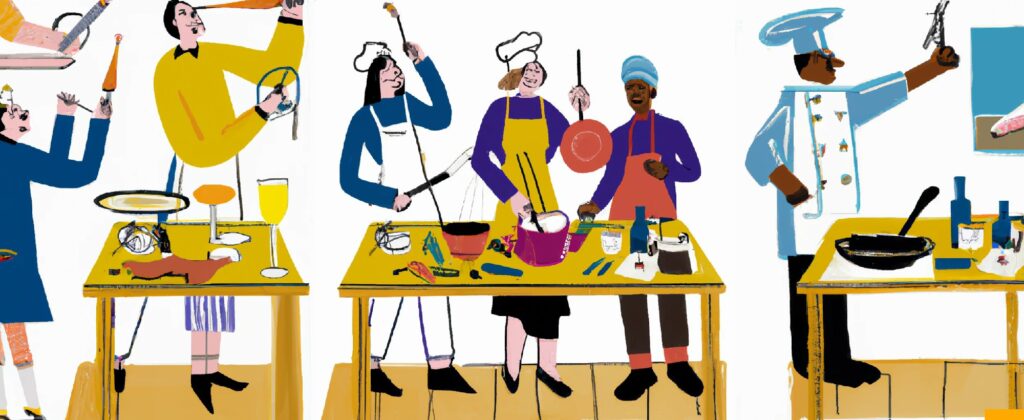
Experience Industry Trends
The vibrant world of experience products is both dynamic and significantly influenced by evolving consumer needs and technological advancements.
1. Personalized Experiences
Uniformity no longer entices the modern consumer. Today’s demand is for experiences that are tailor-made to individual preferences. Reflecting this trend, companies like Local Purse offer live events like virtual shopping tours in markets worldwide. By connecting consumers with local vendors, they provide a shopping experience that is both personalized and authentic, all from the comfort of home.
2. Technological Immersion
Emerging technologies such as virtual and augmented reality have begun to redefine what constitutes an experience. Companies like The VOID are pioneers in this regard, providing hyper-reality live events. Participants can interact, explore, and even physically touch within immersive digital worlds, ensuring a memorable and engaging event.
3. Eco-conscious Experiences
With a growing global focus on sustainability, experiences that prioritize eco-friendly and sustainable practices are gaining popularity. Brands like Intrepid Travel are spearheading this trend. This travel company organizes small group tours with a focus on responsible travel, ensuring minimal carbon footprints and promoting local interaction.
3. Wellness and Self-care Experiences
In a world that moves at a relentless pace, wellness retreats and self-care experiences are becoming more popular than ever. Brands like Aro Hā Wellness Retreat in New Zealand offer holistic wellness programs as live events, featuring yoga, meditation, and plant-based nutrition, catering to the rising demand from wellness-conscious consumers.
4. Story-driven Experiences
Live events that weave a compelling narrative allow consumers to form an emotional connection, becoming more appealing as a result. Atlas Obscura is an excellent example of this trend. They offer tours and experiences that explore the hidden wonders of the world, intertwining captivating stories with travel, making each journey deeply personal and intriguing.
These trends highlight the current dynamism of the experience market. From personalization to immersive technology, sustainability, wellness, and storytelling, these trends aren’t just guiding experience product marketing strategies but are also reflective of broader societal and technological shifts. Brands that can tap into these trends are primed for success in the future of the experience industry.
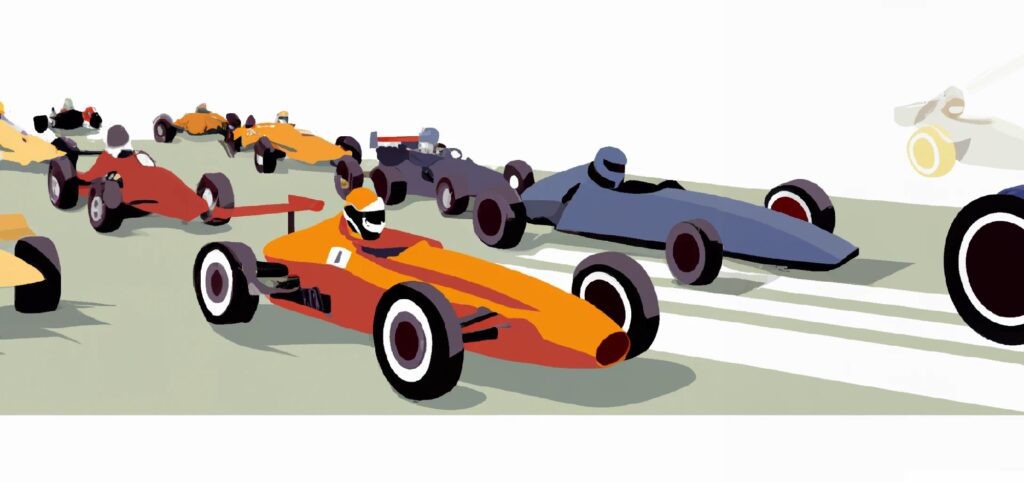
Experiential Products Facts
The experiences industry captivates consumers with its diverse offerings, but there are many interesting aspects that lie beneath the surface. Let’s explore some thought-provoking facts that highlight the depth and impact of this dynamic industry.
1. Happiness in Experiential Purchases
Research has shown that experiences, rather than material items, bring longer-lasting joy. A study titled “Experiential vs. Material Purchases: An Extension in a Different Cultural Context” published in the Journal of Research for Consumers found that experiential purchases often result in increased happiness. This is vividly seen in the surge of popularity for platforms like MasterClass, where users can access classes led by world-class experts, providing unique, educational, and rewarding experiences.
2. The Social Media Effect
In the era of Instagram and Snapchat, experiences have become increasingly shareable. According to an Eventbrite survey, almost 80% of festival attendees reported they were more likely to attend live events that they could share on social media. It’s the “Instagrammable” moments that drive people to experiences like Tomorrowland, a Belgium-based music festival known for its picturesque settings and vibrant atmosphere.
3. Solo Travel: An Emerging Trend
Defying traditional beliefs, solo travel has been gaining traction. Data from the Solo Travel Society found that 46% of adults prefer solo to group travel. Travel companies like Under30Experiences are catering to this trend, offering curated trips designed specifically for younger solo travellers, promoting a sense of adventure, camaraderie, and personal growth.
These intriguing facts shed light on the complexity and dynamism of the experiences industry. With the psychological benefits of experiential purchases, the powerful impact of social media, and the evolving travel preferences, it’s evident that the scope of experience product marketing is broad and ever-changing, resonating deeply with the contemporary consumer.
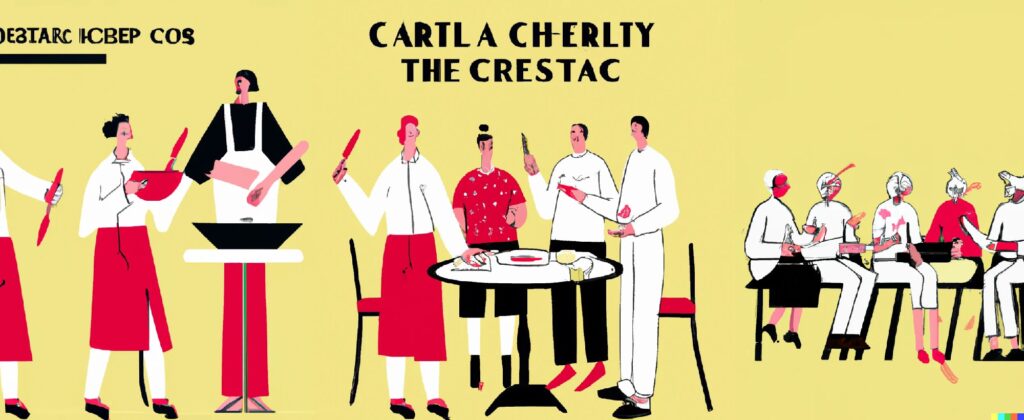
+++ EXPERIENCES BODY ILLUSTRATION 3+++
Decoding Choices: Consumer Behaviour in the Experience Industry
Today’s consumer is more discerning, driven not only by the quality of the experience on offer but also by its potential for personal enrichment and shared value. Here, we look at what influences consumer behaviour when choosing experiences.
1. Personal Fulfilment and Self-Discovery
Modern consumers seek experiences that contribute to their personal growth and self-discovery. Companies like The School of Life tap into this trend by providing courses and events that help people better understand themselves and the world around them.
2. Seeking Authenticity
Authenticity is paramount in the choice of experiences. Today’s consumers crave live events that offer genuine local experiences, like those provided by Airbnb Experiences. These are hosted by locals, ensuring an authentic immersion into the culture of a place, far from the beaten tourist paths.
3. Sustainability Consciousness
More consumers are demonstrating a preference for sustainable and eco-friendly experiences. For instance, Echidna Walkabout Nature Tours in Australia offers wildlife tours that actively contribute to animal conservation, aligning with consumers’ increasing eco-consciousness.
4. Shareability Factor
The potential for an experience to be shared on social media significantly influences consumer choice. Events that offer ‘Instagrammable’ moments, like the visually stunning exhibits at the ArtScience Museum in Singapore, are increasingly popular.
5. Value for Money
The perceived value for money remains a crucial factor. Consumers are willing to pay a premium for unique, once-in-a-lifetime experiences, but they also need to see the value it offers. Luxury adventure companies like Black Tomato deliver exclusive and personalized adventures worldwide, justifying their price point with the exceptional value they provide.
By understanding these patterns in consumer behaviour, brands can tailor their approach to “experience product marketing”, crafting offerings that resonate deeply with their target audience, and driving both engagement and brand loyalty.
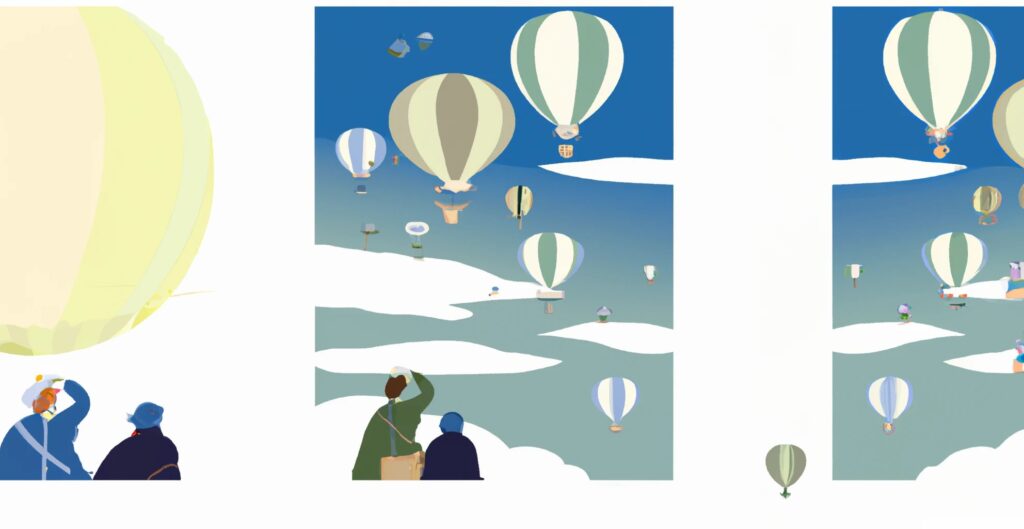
Crafting Narratives: The Experiences Buyer Persona
Identifying the buyer persona is a critical step in the experience product marketing strategy. Understanding who they are, what they desire, and what drives their decisions allows brands to create experiences that truly resonate. Let’s explore five buyer personas within the experience industry.
1. “Adventure-Seeking Alex”
Alex is a 28-year-old software developer. He’s single, loves outdoor activities, and prefers offbeat experiences to traditional vacations. Brands like REI Adventures appeal to Alex, offering hiking, biking, and multi-sport adventures in various international destinations.
2. “Eco-conscious Emma”
Emma is a 35-year-old teacher, deeply passionate about environmental conservation. She prioritizes eco-friendly and sustainable travel options like Responsible Travel, offering a variety of eco-tours and vacations that respect nature and benefit local communities.
3. “Wellness-focused Will”
Will, a 40-year-old executive, values experiences that enhance his physical and mental well-being. Companies like Healing Holidays attract Will, offering wellness retreats that feature meditation, yoga, and other self-care practices.
4. “Culture Curious Carla”
Carla, a 50-year-old author, seeks experiences that allow her to immerse herself in different cultures. Brands like Insight Vacations captivate Carla, providing tours that highlight the history, art, and cuisine of various global locations.
5. “Luxury-loving Laura”
Laura, a 45-year-old entrepreneur, prefers high-end, exclusive experiences. Brands like Abercrombie & Kent cater to Laura’s preferences, offering luxury small group journeys, private tours, and custom tailor-made travel for the ultimate luxury experience.
Understanding these buyer personas enables brands to tailor their marketing efforts effectively, creating experiences that resonate with their audience’s unique preferences and shaping winning lifestyle brands. Recognizing the diversity of consumers and their varying motivations is key to developing successful experience products that truly connect.

Innovative Brands in the Experiences Industry
In the realm of experiences, innovation is a driving force. Here are five brands that have successfully integrated unique propositions into their offerings, redefining the landscape of the experiences industry.
1. Meow Wolf: Redefining Art Experiences
Meow Wolf is an arts and entertainment group creating immersive, interactive experiences that transport audiences into fantastical realms of storytelling. It stands out for its innovative approach to art that challenges the traditional boundaries between audience and exhibit.
2. The Secret Cinema: Blending Film and Live Performance
The Secret Cinema takes the cinema-going experience to a whole new level. They create immersive worlds where iconic films unfold around the audience, blending live performance, music, and film in an unprecedented way.
3. G Adventures: Promoting Responsible Tourism
G Adventures has made a name for itself with its commitment to responsible tourism. They offer small-group tours that ensure the money spent benefits the local communities, pioneering a sustainable approach in the travel industry.
4. Taste Hungary: Culinary Delights and Cultural Insights
Taste Hungary is a travel company based in Budapest, Hungary, that offers gastronomic tours and experiences. They aim to introduce travelers to the region’s rich culinary traditions and wine heritage. From wine tasting tours in the Hungarian countryside to culinary walks in Budapest, Taste Hungary offers a delightful blend of food, culture, and history.
5. Magic Leap: Pushing Technological Frontiers
Magic Leap is a technology company revolutionizing the field of mixed reality. They’re creating new ways to interact with digital content, providing unique, immersive experiences that were unimaginable just a few years ago.
These brands, through their innovative approaches to creating experiences, are revolutionizing the industry, continually pushing the boundaries of what’s possible. By focusing on their unique selling propositions and aligning with emerging trends, these brands serve as inspirations in the realm of experience product marketing.
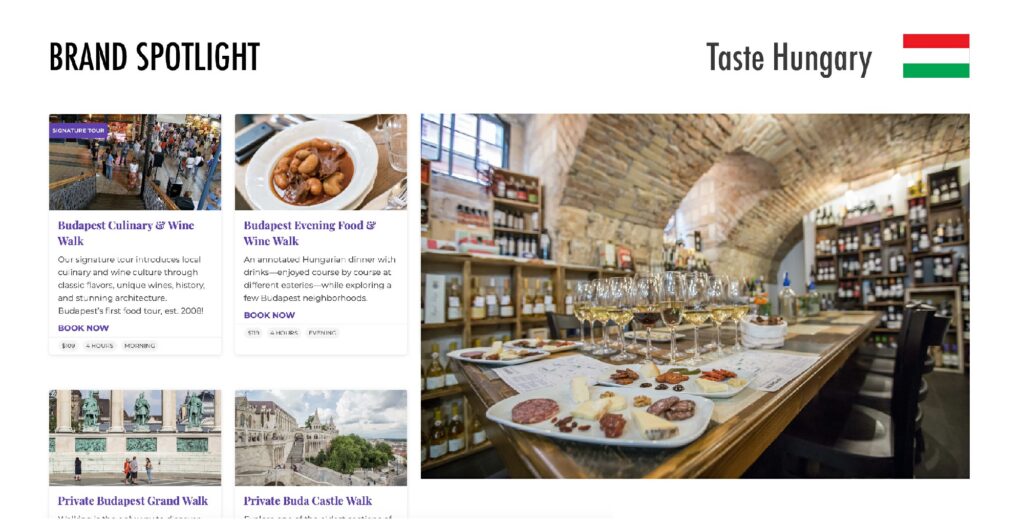
Strategies for Marketing Experience Products
In the ever-evolving landscape of experience product marketing, brands must craft ingenious strategies that captivate, inspire, and forge lasting connections with consumers. This article delves into the artistry of impactful approaches employed by successful brands in promoting their extraordinary experience products, using real-life examples that showcase the profound effectiveness of their methods.
Compelling Storytelling: Weaving Tales of Wonder
In a world hungry for captivating narratives, brands like National Geographic Expeditions have mastered the art of immersive storytelling. Through their awe-inspiring tales of adventure, they transport audiences to extraordinary realms, stoking the flames of curiosity and inspiring wanderlust. With every eloquent word and mesmerizing image, they invite individuals to embark on their own transformative journeys of discovery.
Influencer Partnerships: Cultivating Authentic Alliances
The symbiotic dance between brands and influencers has become a compelling phenomenon in experience product marketing. Brands like Intrepid Travel have forged strategic partnerships with travel influencers who embody their ethos and ignite the passions of their target audience. Together, they embark on thrilling escapades, documenting their journeys with captivating imagery and compelling narratives that paint a vivid picture of the immersive and authentic experiences on offer.
User-Generated Content: Celebrating Moments of Authenticity
In the age of democratized creativity, brands such as GoPro have harnessed the power of user-generated content to exceptional effect. By encouraging customers to share their daring exploits captured on their cameras, they curate a tapestry of extraordinary moments, showcasing the raw authenticity and unbridled joy experienced by real adventurers. These genuine, unfiltered glimpses ignite the imaginations of others, inspiring them to create their own remarkable memories.
Personalized Recommendations: Curating Bespoke Adventures
In a world brimming with choices, brands that master the art of personalization stand out from the crowd. Pioneering the path, Netflix employs sophisticated algorithms to curate personalized content recommendations that delight and captivate viewers. Likewise, experience product marketers can craft bespoke adventures, tailored to individual preferences, ensuring each customer embarks on a journey perfectly aligned with their desires, dreams, and yearnings.
Embracing Social Media: Energizing a Digital Community
In the vibrant realm of experience product marketing, brands like Red Bull soar above the rest, defying gravity with their electrifying social media presence. Through adrenaline-pumping videos of extreme sports and sponsorship of heart-stopping events, they have forged a dynamic digital community of fearless enthusiasts. These exhilarating interactions and electrifying experiences infuse the brand’s essence into the hearts and minds of their audience, sparking an insatiable thirst for the extraordinary.
By deftly applying these masterful marketing strategies, brands unleash the true potential of their experience products. They kindle an insatiable hunger for adventure, painting vivid landscapes of possibility, and coaxing individuals to seize life’s remarkable moments. With compelling storytelling, influencer alliances, user-generated content, personalized recommendations, and a captivating social media presence, brands ascend to new heights of success, becoming architects of extraordinary experiences that resonate deeply and etch indelible memories in the souls of their ardent explorers.
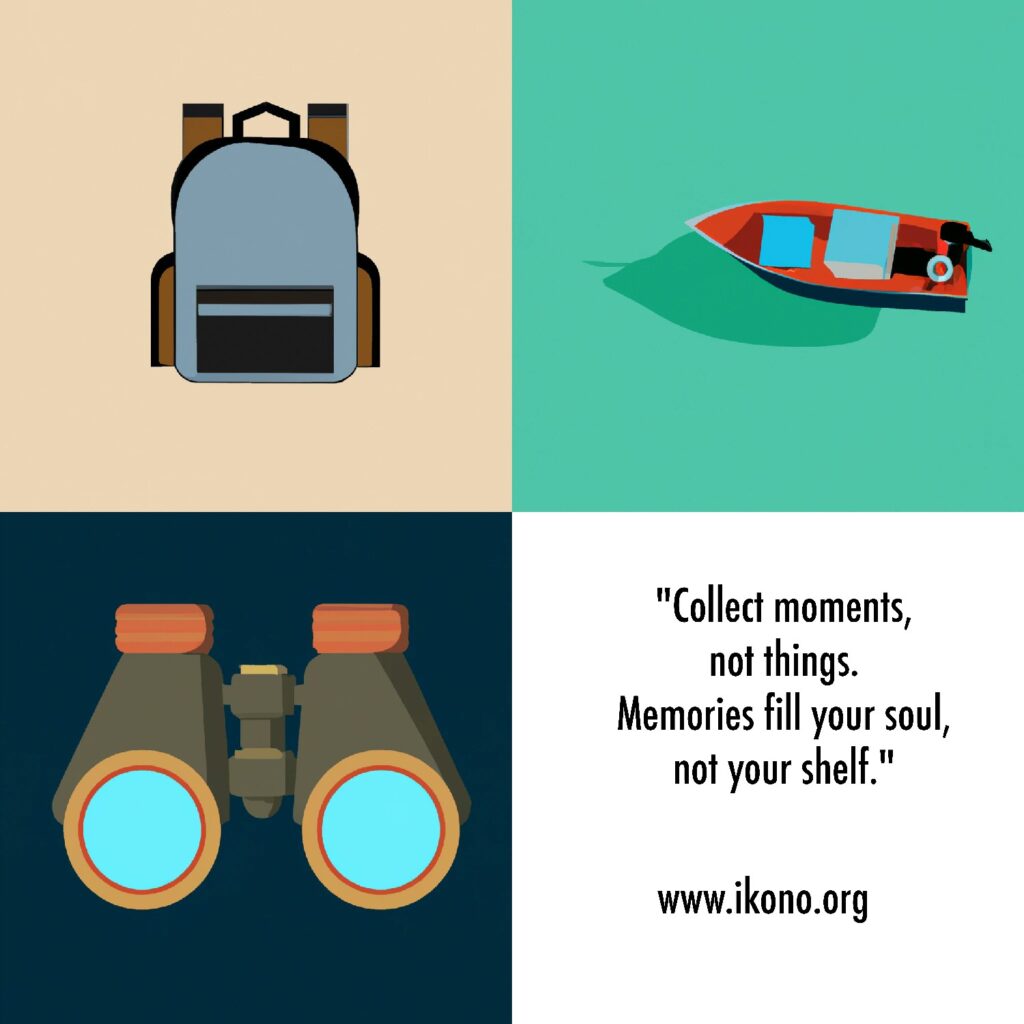
Ikono as the go-to branding agency for experience products
As the curtain falls on this journey through the realm of experience product marketing, we invite you to envision the next chapter in your brand’s narrative. Just as masterful storytellers, the experience branding agency Ikono stands ready to guide you towards the pinnacle of success. With their meticulous craftsmanship, strategic acumen, and deep understanding of the nuances that make experiences truly remarkable, Ikono unleashes the power of your brand, transforming it into an immersive force that captivates hearts and ignites imaginations. Let Ikono be your guiding light, as they craft a visionary brand strategy, curate captivating narratives, and ignite a profound connection with your audience. Together, we will transcend boundaries, pioneering new horizons, and shaping the very fabric of the experience industry.


